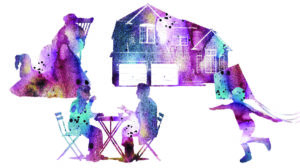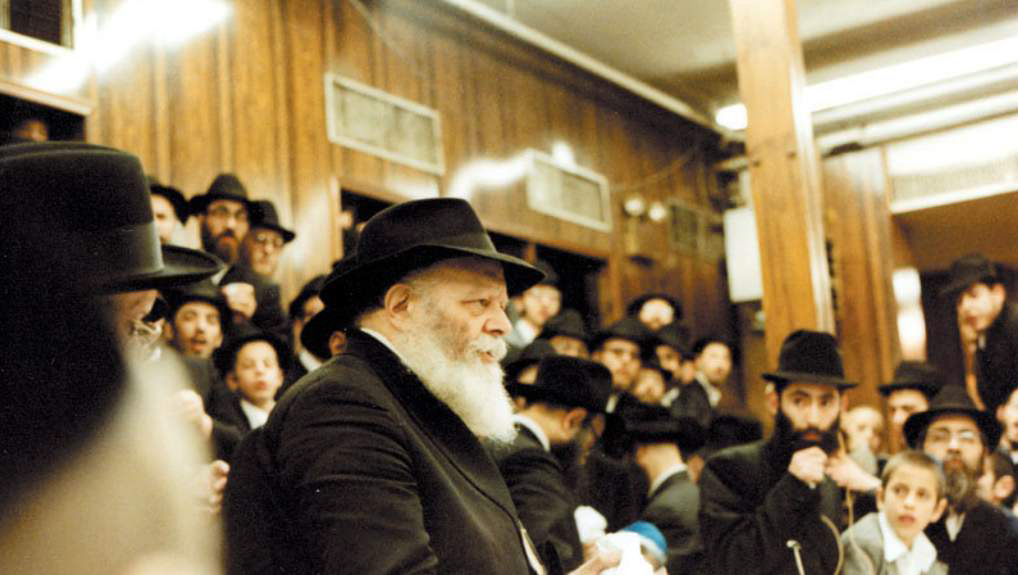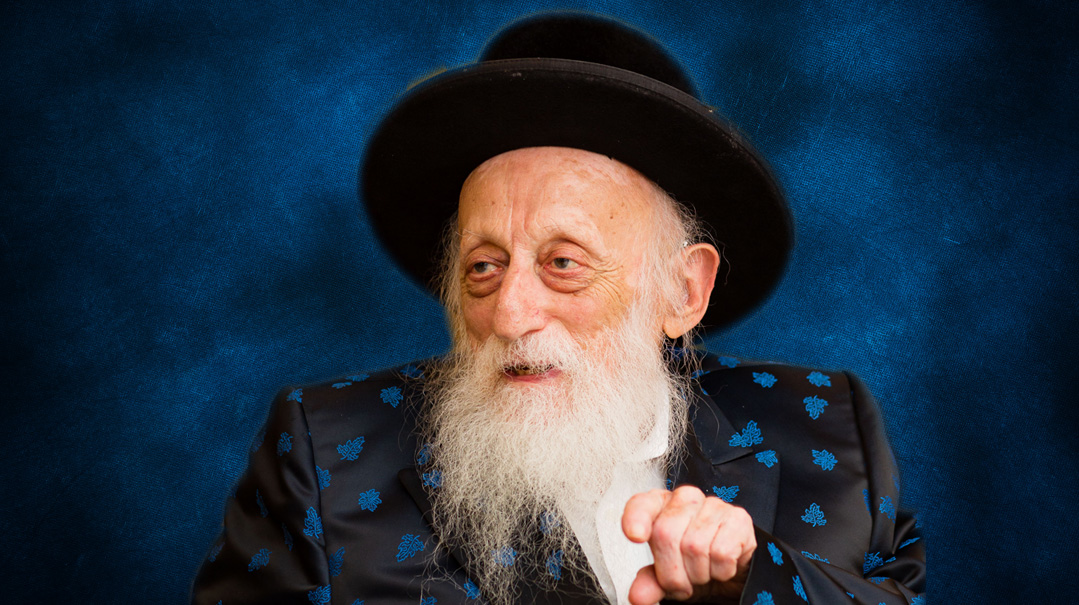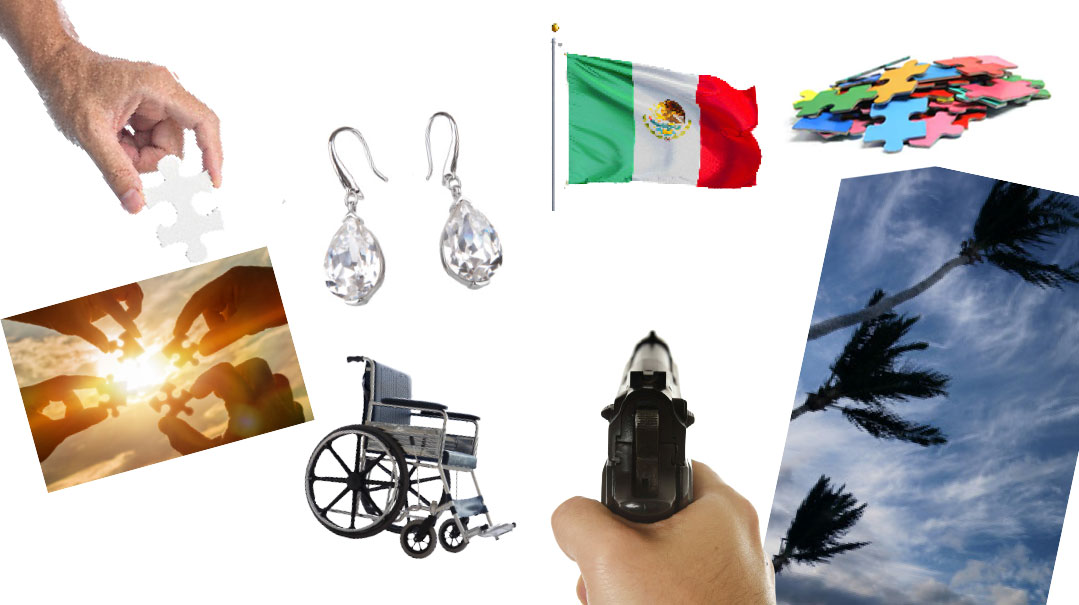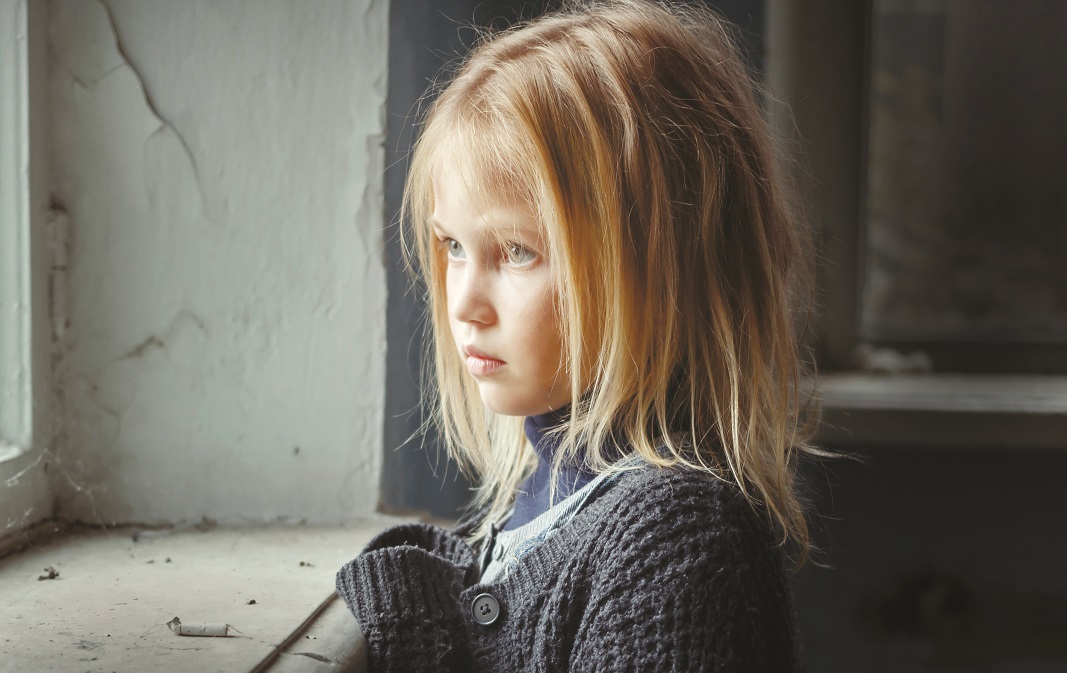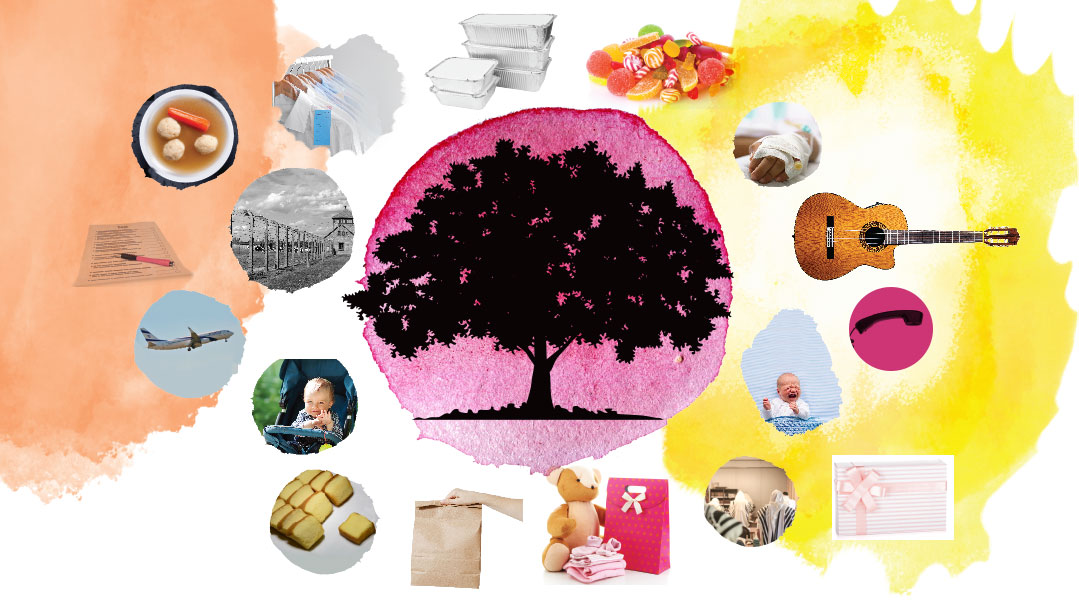Those Who Returned

Each person who turns away from the path of Torah has his own sad trajectory. Fortunately, many of them loop back, returning to Torah from a place of authenticity, finally finding the beauty and joy within Yiddishkeit

Dina’s story
My parents, both baalei teshuvah, got married when my mother was 19 and my father 29. All five of us kids were born within six years. I was the youngest.
My childhood was tough. My parents fought a lot, and their marriage eventually devolved into dysfunction. We lived in an insular frum community, without any understanding of baalei teshuvah or support for them, and my mother felt stifled.
As their relationship deteriorated, my father used Judaism as a weapon, and my mother responded by becoming less and less religious. She moved us to a Modern Orthodox school. She stopped covering her hair. She introduced a TV to our home, gradually leaving it on more and more, eventually put it on a timer for Shabbos... and eventually put it on on Shabbos. By the time I was in eighth grade, only my father, one sibling, and I were still frum.
I wanted to be frum. I was very involved in NCSY and I loved Judaism. I fought my entire eighth grade year to go to a Jewish high school.
It was an uphill battle, and the school I was in wasn’t helping any. I was a deep thinker, but my questions weren’t answered. “It’s not part of the curriculum,” my teachers would say. When I wanted to understand Shemoneh Esreh, they told me to just read the English translation. I did, but I still didn’t understand. “Sit down and stop asking questions,” my teacher said. After a month of this repetitive exchange, when everyone stood up for Shemoneh Esreh, I sat down. I was kicked out of the class.
Between the school and my parents, I basically had no positive frum role models; by the end of eighth grade I was living in the perfect storm. I didn’t go off the derech so much as being yanked off by both arms. I decided G-d couldn’t possibly exist. For high school, I went to public school.
Ninth grade was a horror story. The public school was incredibly anti-Semitic. I didn’t know how to process the lifestyle my classmates lived. When I went home to my frum neighborhood, I was the goy; in school, they hated Jews. I didn’t belong anywhere. No wonder I became extremely depressed: I had no place, I had no purpose, and I had already decided there was no G-d, which in my mind, meant there was no point to anything.
My social life went through a series of upheavals. First I got in with the cool kids, but I couldn’t tolerate their superficiality and superiority. When I dropped them, they tormented me. I found a new group of friends who were underdogs and underachievers. I didn’t think I deserved any better.
One day I was hanging out with a friend and we decided to take her boyfriend’s car for a drive. Neither of us were old enough to drive or knew how to, but we didn’t think about that, I just picked myself up and got into the car without even putting on my shoes. I didn’t feel I had anything left to lose.
As my friend drove faster and faster, it occurred to me that we were probably going to crash and I might die. That would be perfect, I thought. It won’t even be my fault. But as her driving became extremely erratic, I panicked and began to put on my seatbelt.
A sudden feeling overwhelmed me: DON’T WEAR THE SEATBELT.
My hand froze on the clicker. DON’T WEAR THE SEATBELT. That feeling was so strong. Where was it coming from? What did it mean? Why shouldn’t I wear the seatbelt?
CRASH.
My body hit the dashboard. My head went through the windshield.
I was alive.
I looked up. We had hit a house.
My head was painted in blood. I climbed out of the car and stood up. So did my friend. I looked up at the house. Above the wall we had broken through was a window. In the window, staring down at us in shock, were three sweet, beautiful, angelic-looking frum kids.
I used to look like that, I thought to myself. I looked down at myself now — bare feet, crashed car.
I ran home. Broken ribs and all.
The police came knocking. They asked me lots of questions. One of them was, “Why weren’t you wearing a seatbelt?”
What was I supposed to tell them? I was going to put it on, but some weird premonition stopped me?
The cop informed me that not wearing a seatbelt had saved my life. There had been a heavy toolbox behind my head. If the seatbelt had restrained me, that toolbox would have hit my head with all the force of the impact. I would have been killed instantly.
Why hadn’t I been wearing a seatbelt?
At that moment I knew there was a G-d after all.
I spent the next few years looking for G-d, trying to figure how He functioned in the world outside Judaism, because Judaism clearly couldn’t be true. But after examining many religions, I ruled them all out. None of them could be the truth. I decided to take the best of each and forge my own path.
Toward the end of my junior year in college, I walked into a cafeteria and saw someone holding up a sign: Free trip to Israel.
I had been to Israel recently — my brother had gotten married there. I had not quite fallen in love with the land. It was a complicated wedding for me — I loved my brother, but the anti-religious people in my family created a poisonous atmosphere. None of that made me too open to appreciating the Jewish homeland. So I really had no interest in a trip to Israel, even a free one… but a chance to see my brother? I applied for the trip.
The e-mail I received in reply came from the most Jewish-sounding name you can imagine: Devorah Singer. Forget it. I was not doing this.
But Devorah was persistent, and in the end, I went.
Something changed on that trip to Israel. It was the first time I was hearing about Judaism as an adult. It struck me that the major reasons I had disconnected from Yiddishkeit were all external circumstances. I didn’t have any real proof against the Torah. When I got back from Israel, I decided to give Judaism another chance.
With my updated, mature perspective, I started to learn. I began with Derech Hashem by Ramchal. It blew me away — I was learning the secrets of the universe, all the things they hadn’t taught me in school.
Reclaiming Judaism was a long process. It took a long time until I was able to join Devorah’s family for a Shabbos meal — for a while I’d drive past and not have the guts to go in. But it happened, bit by bit. My mother fought me every step of the way, but I wanted a better life, a meaningful life.
I had no illusions anymore. I knew the frum world had problems and I knew the non-frum world had problems. At least the frum world had Hashem to turn to with their problems. In the non-frum world, when you had problems, you were just stuck.
By the time I finished college, I was religious again.
I started to work in kiruv and then went to learn in Israel for a year. I met my husband there; he had become religious while in medical school. Together, we created an open home where people can feel loved and feel like they belong. I run programs and build communities for disconnected Jews in their twenties and thirties. My husband is an unbelievable example of what it means to be a ben Torah while working and maintaining a strong connection to Torah.
I teach in the local Bais Yaakov high school, giving my students the meaning and inspiration I didn’t get when I was their age. If a teacher had reached out to me when I was a kid, my life would have looked totally different. I try to be that teacher.
A friend and I run shalom bayis and parenting classes (mostly for baalei teshuvah). We bring in mental health professionals and rabbanim to give couples tools and support. Maybe if my parents had had that, they wouldn’t have suffered so much.
It’s easy to be angry. I spent my teen years being angry at my parents and everyone around me. But by my twenties, I had grown enough that I could acknowledge that my parents had also suffered and struggled, and I tried to let go of the anger. I tried to forgive them.
In my thirties I realized I needed to forgive Hashem also. He wasn’t trying to hurt me, He was guiding me to my life’s purpose. I tried to let go of that anger too — I realized it was misplaced. I asked Hashem to forgive me for being angry over things that were ultimately for my own good. It was all the difficulties He gifted me with that led to my inspired passion and fire for Torah, and my life of giving back to the klal.
We control very little of our own lives; mainly, how we choose to respond to our circumstances. There are three choices. You can forever be a product of your childhood, never grow beyond your pain and never fulfill Hashem’s unique design for you. Or, you can make the choice to rise above the pain and fulfill your unique role in this world. But the third option is even better — fulfill your role and use your pain to fuel you to help others heal and fulfill theirs. It’s not easy, but it’s a life full of meaning and purpose and ultimately brings a sense of shleimus and simchah.
Yosef’s story
I was eight years old when I made one of the most significant decisions of my life: When I grew up, I wasn’t going to be frum.
Most people assume kids start drifting when they’re older — teenagers who get stuck in the agonies of adolescence and turn to risky or rebellious behaviors to help them process their angst. But that’s not true: Once you can take a look at a kid and see the outward signs of their struggle, they’ve been struggling internally for a while. A long while.
Why would an eight-year-old decide not to be frum? In my case the answer was simple: physical abuse. I was beaten by my rebbeim all through elementary school. By the principals, too. One rebbi was so extreme that he was actually fired toward the end of the year, but that was too late for me.
I switched to a different yeshivah the next year, but it didn’t fix everything. The rebbeim in the new school also hit their students. Besides, I had been sick for a few months and missed the beginning of the school year. When I finally started school, I struggled to make friends and find my place in the class.
I was a very hurt, very angry kid.
We tried to make things better. I switched schools four times in elementary school. I was in four different high schools, too. I didn’t make trouble, but I wasn’t engaged; I literally slept through class. I considered all rebbeim and authority figures to be hypocrites, and I didn’t want anything to do with them or their Judaism. I had made my decision and I was just biding my time until I could get out of there.
In between high schools, I finally made friends. They were kids just like me: hurt, broken, or disenfranchised, moving in and out of yeshivos, not really doing anything. Finally, I had a social circle, kids who understood me, people I could relate to. These guys got me. They knew all about hypocritical adults and intolerable Yiddishkeit. They knew all about my daily misery. They also knew all about smoking, drinking, hanging out, and doing drugs.
As time went on, I started acting on my plan to stop being frum. I started pushing the boundaries. My parents never allowed us to wear bright T-shirts or baseball caps, but I insisted on it. That wasn’t so deviant — plenty of frum people wear T-shirts and baseball caps — but it was definitely a deviation from our community. The older I got, the more I pushed that line. My goal was to get further and further away from the lifestyle of a Jewish kid.
By 14, I had stopped keeping Shabbos. I started eating treif. At first, I did these things when no one would see and my parents wouldn’t know, but as I got older and bolder, I stopped caring and it became obvious. I was terribly angry, and every time I broke halachah I directed my actions at the people who had hurt me so much. When I turned on the light on Shabbos, in my mind I was turning on that light “at” them. See! I don’t care about you and your stupid rules! Watch this!
After high school I went to a yeshivah in Israel designed for kids like me. Finally, freedom, my chance to do whatever I wanted.
What did I want? To be happy, of course, but I didn’t know how to accomplish that. I was out every night, drinking and doing drugs.
Eventually, I returned to the US, landed in rehab and got clean. For the next seven years, I started to build a life. I stayed out of trouble, got a real job and lived independently. I became a functioning member of society, even developing a relationship with my family, and Alcoholics Anonymous lent a new spirituality to my life. For the first time, I had G-d in my life — not just as rules, but as a relationship. But as far as lifestyle goes, I certainly wasn’t frum.
I got married when I was 30, and that’s when things started to change.
My wife, like me, wasn’t religious but came from a frum family. Getting to know her family exposed me to a brand of Judaism I had never seen before. It was a Jewish lifestyle of love, caring, and ahavas Hashem; of doing the right thing for the right reason. I thought, okay, this is different. This could work. We started experimenting, trying out different things, seeing what we could keep.
As this new perspective was sinking in, our family grew. Having kids forces you to make choices. Are you going to send your kid to public school or to a Jewish school? We chose a Jewish school (“Let them get a good Jewish education and then they can decide for themselves.”)
But that forced us into other choices: How can you make your kid wear a yarmulke if you yourself don’t? Your kid learned about Simchas Torah — are you going to take them to shul or not? I had never felt that Judaism was a lie and the Torah wasn’t true; I just didn’t have any experience keeping the Torah in a way that could work for me. But suddenly I was finding that maybe there was a way….
As my heart and mind opened a little, there was room for the memories. There had been people along the way who tried to reach out, like the guy who would drive around and pick up me and my friends just to shoot some hoops and hang out with us. There were rebbeim in Israel who invited me for Shabbos and showed me beautiful, strong families where everyone was happy and no one was being abused. There were other little influences, like how I loved the singing by davening. As a kid, none of that was stronger than the pain. But now I had healed enough to reconsider. Gradually, we began incorporating more practice into our lives.
Becoming frum again was a process. Hashem knows my story, though; I knew He didn’t expect me to do everything at once. The teshuvah process, for every person, is always made up of small steps. Those small pieces added up to a lifestyle. Every choice I made built the relationship.
What can you do to prevent a story like mine? If there’s a child who has been abused or experienced trauma, it’s important that they receive intervention and therapy to help them process the experience so the trauma doesn’t last for life.
Another contributing factor was my total disengagement from the school experience. That kind of disengagement can occur for many reasons besides abuse. Rebbeim and teachers need to find ways to keep every kid in the class involved, engaged, and growing.
My social failure was also a factor. It’s the responsibility of parents and rebbeim to make sure their kids have friends. If your kid is a loner, there’s probably a reason for that. Find the reason and fix it.
And more than anything, lots and lots of love. Love is time, love is attention, love is being engaged and really caring. When my own kids have teachers who really care, they do better. The love those teachers exude is magical. I don’t even know if they’re necessarily better teachers. Maybe they just care more. But I do know that love works.
Today, my wife and I are 100 percent frum and raising our children in a Torah-true home. We’re part of a community and have strong relationships with both our families. I daven for the amud every year on the Yamim Noraim.
I look around sometimes and see kids who are where I used to be — angry and lost. Their parents look lost too. I want them to know there’s hope. That this struggling, suffering little boy who decided not to be frum has grown and developed into the satisfied, loving, connected person I am today.
Never stop hoping.
Leah’s story
As told to Rochel (Grunewald) Samet
Ever since I can remember, I had questions. I suppose, though, that it really all started when Mom died. I was just seven years old.
I didn’t understand how G-d could do this to me. How could He could take a little child’s mother away? How He could allow my father to remarry so quickly? Why was I uprooted and relocated to a community very different than the one I was used to?
I didn’t understand G-d, and I didn’t understand religion. If He wanted us to daven three times a day, why did Dad never go to shul? If He wanted us to dress modestly, why didn’t my stepmother look like the other women in the neighborhood?
It wasn’t only questions that haunted me. After the remarriage, my home life had turned into a nightmare of dysfunction. I dreaded coming home from school, sick to my stomach, wondering what I’d find upon my arrival.
When I graduated elementary school I enrolled in a high school in another city. I had high hopes: I liked the girls, the school seemed nice, more liberal minded, more accepting. But everywhere I looked, I saw question marks. It wasn’t only my parents; I spotted a teacher acting against her preached values, I had friends who treated their Judaism as easy-come-easy-go, to be picked up and discarded at will.
I thought I could ignore the questions, but they only got stronger. I became entangled in bad relationships, messed around with drugs and alcohol. The school that promised to be so accepting kicked me out before I’d even completed ninth grade. My life transformed into a horror story; school had been the only safe place I had.
That was when my emotional world began to unravel. I’d been suppressing it for years, the shame and the terror and the ugly questions that coiled around my gut. Doubts turned into demons, and my mind was a trap of its own. I hated G-d, I hated life. I wanted out.
I developed a severe eating disorder, coupled with depression and suicidal thoughts. At the end of a slippery slope of emotional and mental sickness, I landed in a psych ward, mad at the One Who let this all happen to me.
But before I could work through my anger at G-d, I had to recover. Physically, emotionally, mentally. When I was released from hospital, my dad sent me to a therapeutic residential school specifically for girls who had gone off the derech. The opening line of my interview with the intake therapists was, “This is a place for second chances.” I was sold.
The staff was warm, accepting, and great role models for me in their frumkeit and hashkafos. The other girls were more or less at the same religious level I was at the time — basically, zero — but we were different in their total antagonism toward religion. I wanted answers, but I didn’t necessarily want to stay irreligious.
Maybe it was that inner rebel that couldn’t stand doing what everyone else was doing. When the girls in the dorm texted each other on Shabbos — just to prove something — I withdrew. I wasn’t keeping Shabbos either, but I didn’t like the attitude.
Therapy helped a lot. I began to heal emotionally, and then I could start my spiritual journey. I knew I wanted something more. One of the madrichos at the school, Sara, impressed me. She was real and balanced, religious but normal. None of the hypocrisy I’d grown up with, saying one thing and doing another. Religion took on new dimensions.
I wasn’t keeping anything at the time, but Sara encouraged me to build a relationship with G-d. I began talking to Him. It was a novelty to me, that I could express my feelings to Him in words, that He was listening. I felt more at peace, more connected.
I thought about keeping Shabbos again. I knew I wanted to, maybe, possibly, probably, someday. But I wasn’t ready to make the commitment.
Then I met David. He had been through his share of difficulties in life, and we hit it off immediately. We were both deep, sensitive, scarred teens who had been to hell and back, and were slowly adjusting to the idea that perhaps we actually had a future.
David’s yeshivish parents, to their eternal credit, were incredibly accepting of our relationship — although it wasn’t easy for them. They accepted me into their home with open arms and were there for me as if I was their own daughter. For the first time in my life, I felt unconditionally loved.
David and I discussed our visions for the future. Did we want to become religious? There were so many communities, so many options. I saw in David’s family that it was possible to have religion in a healthy, balanced, beautiful way. Should we take the plunge and go all the way, back to our roots, to a real, solid, committed way of life?
David was adamant that if we do something, it should be done properly. No half-and-half lifestyles, Take Judaism when it fits in and cast it away when something else seems more enticing. We argued and debated a lot. I didn’t feel ready for this.
But by the time I “graduated” the therapeutic environment I’d lived in for two years, I was dressing in a more tzniyusdig way. It felt right. I didn’t make any promises, no commitments, but I felt comfortable. I even enrolled in seminary, a program which many of my old high school friends planned to come to. David’s parents brought me and my suitcases over to the seminary dorms that first day, and his mother helped me to unpack. I was ready for a new stage.
I hoped I could slide right back to my comfort zone, join my friends where we’d left off.
Only I was a thousand years ahead. After my life experience, the pain I’d been through, I couldn’t relate to my friends, to the superficial issues, to the half-hearted view on life. Too many of them wouldn’t take things seriously; I saw hypocrisy wherever I turned.
And I had David and his family, who I met with regularly, strictly off the radar. He’d sit down and pull out seforim, the Shulchan Aruch. “See, Leah, this is halachah. You believe in G-d? You believe in His Torah? Then we should be keeping this.”
His logic was impeccable; still, it was hard to make the leap. I was doing things I shouldn’t be doing, and my heart had to catch up with my mind. Becoming shomer negiah was one of the biggest challenges.
I left seminary as a rebel, but in essence I was headed upward. I just had to make the journey, step by arduous step, to get there.
One thing I’d been so confused by as a child was the attitude at home toward rabbanim and even the gedolim. I’d absorbed so much negativity and animosity that it took a long time to change that mindset. When Rav Elyashiv was niftar, I didn’t understand the tragedy. It took many long conversations with David to readjust my reality.
That was when I realized it had never been G-d or religion that I was angry with, only my flawed perception of it. I have a black-and-white personality. When I realized this, everything seemed to fall into place. Life made sense like it never had before. I was going to do this, and I’d do it all the way.
David introduced me to his rav, who became mine, too. I developed a relationship with his wife, finally asked all those unanswered questions. Sitting at the Shabbos table in their small apartment, I marveled at the simplicity of their lifestyle, the contentment in their home, the beauty in their dreams.
Eventually, David and I got married. Our past, our painful stories, no longer define us, but they empower us to grow, to give, to raise our children in the most beautiful way we know. We still sit and talk for hours about hashkafah, how to get things right, and the conversations hold golden echoes, as I remember the journey that brought me home.
What You Control
Moishe’s mother speaks
If I could tell another mother on this journey just one thing, it would be this: The nisayon of an OTD kid is not about the child. It’s about you.
If your child is over bar or bas mitzvah, the Torah considers him an adult. A full-fledged adult who is completely responsible for his choices and who has the ability to make the right choices. You are not required to make his choices for him. You cannot make his choices for him. You are not responsible for the choices he makes.
You are responsible for the choices you make.
The nisayon is not about what your child is doing (smoking or girls or Shabbos). You have no control over that. The nisayon is about what you are doing (getting angry, losing control, speaking lashon hara). That’s the only thing you have control over, and that’s where your focus should be. That’s the nisayon.
That’s actually good news because when you make the right choices, over and over again, you give your child a model to copy. That model is the only tool you have to influence him.
And when you focus on the actual nisayon —your actions, your reactions, your choices, your responsibility — the experience becomes much easier to bear, you make fewer mistakes, and you’re actually helping your child.
When I finally realized this, it was the most liberating and empowering realization. You’re always asking yourself, at every bewildering turn, What in the world can I do to fix this? Answer (and we are desperate for answers): The one and only thing you could and should do is choose the right option from the choices that are available to you. I can’t control his actions; my job is to control my own.
It’s a crazy, painful journey. Everything feels like it’s falling apart, everything feels out of control. When you feel that way, remember that the nisayon is not in what your child is doing. It’s in what you’re doing. And that’s not out of control.
If you want parenting advice, don’t copy me. Copy Hashem. Mah Hu, af atah. That’s the best chinuch a parent can give to their children. How does Hashem treat us, imperfect as we are? That’s how we should treat our children.
Now that we’ve reached the other side, I can say something strange: This nisayon gave me a lot of gifts. It gave me a clearer perspective; it made me more openhearted and open-minded. It gave me the immeasurable gift of surrender. Hashem gave me my son as a mirror, to help me see what I needed to change in myself.
My son came back. He became a shomer Torah u’mitzvos again, is married to a wonderful girl, and living a Torah-true life. We are so grateful.
But as far as my nisayon goes, it’s not about who my son became. It’s about who I became.
(Originally featured in Family First, Issue 645)
Oops! We could not locate your form.




